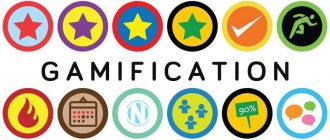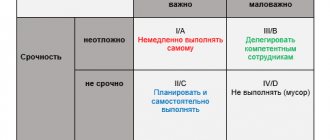Anna Ryzhkova is a career consultant, ambassador and speaker at the fall Forbes Ontology 12 University, which will run from September 28 to December 15, 2021. Over 12 weekends, club members will receive a comprehensive navigation program on 12 essential wealth management skills from 12 coaches with an undoubted reputation in the industry. Let's meet in the highest apartments in Europe "Federation Towers" in Moscow City at the end of September!
There is a good saying: to leave Brooklyn, you need to order a taxi to Brooklyn. It says that the first step towards solving a problem is recognizing it. Everyone knows about a midlife crisis: it involves a red sports car, an affair with a 20-year-old secretary, a yoga or tango instructor, a divorce. A huge amount of sad, senseless destruction. Strong bridges that take years to build are burned, successful careers are shattered, sudden and not very effective leaps are made in different directions, and tons of money are spent. When the problem is not recognized as a professional one, and the cause of internal discomfort is not clear, a destructive wave sweeps away completely viable and seemingly stable family ties, then you have a wave of divorces at 40+. Marathons have been added to the gentleman's set - also a type of escape. And even executive MBA programs are where people go rather for a pill against the crisis. When such a successful and adult person, who has already tried different paths, comes to a career consultation, his request is formulated very vaguely, he does not understand what is happening at all.
“There’s something wrong with me,” says Victor B., (the owner of large serious ships), a little embarrassed. I built this business for 20 years, started from the very bottom, worked like crazy. In general, I believe that this is the only way to achieve something, investing all your strength and energy. But over the last year something strange has been happening to me: I’m practically forcing myself to do things, it’s all become uninteresting to me.”
Advertising on Forbes
Long-lived pros
Why is the professional crisis of 40+ such a hidden story? And it’s very simple: we are the first generation to encounter it. At 40-45, our parents already felt out of date and professionally uninteresting to anyone. We are the first to add a couple of decades to the average life expectancy—and, accordingly, to the length of a career. We are the first who, in the middle of life, still feel the strength and determination to make active body movements - to move to another country or learn a new profession. We are the first who, at 40-45, perceive ourselves as young, and from here, from our own sense of youth, we build our relationships with children and parents, with our careers and future. In general, we are the first ones who, at 45, look forward and not back.
Here is my client Anna, now the general director of a pharmacy chain: “At 39 I gave birth to my second son, at 43 I went back to work and realized that I wanted to do completely different things. And then I started all over again: I plunged headlong into this business, figured it all out, learned many things that I could not even imagine before. Sometimes I was scared and everyone around me said – what did you come up with in your old age! But my secret, my support was that I absolutely did not feel old! Yes, I could give each of the 30-year-old employees I hired a head start! I'll be 50 this year and I still feel the same way."
However, when our professional path takes on greater duration and, as a consequence, greater variability and freedom, we inevitably encounter a large number of new difficulties.
Change of world view
Every person is characterized by a revaluation of values, which becomes more and more significant with age. Having built a successful career, a woman can understand that she wants to devote herself to her family. Someone will decide that too much time has been spent on an unloved activity and, perhaps, will not be afraid to change everything. Situations can be different, and the most important thing is to understand that all people face a crisis at a certain period in their lives. The correct attitude to what is happening will allow you to cope with the crisis faster and easier.
Burnt out at work
Why does the crisis come at 40? Around 40, the cumulative effect of burnout hits us hard over the head. Top 3 most toxic factors that are guaranteed to lead you to a dead end.
External motivation. No matter what you do, no matter what social level you are at, how creative your work was or wasn’t - none of this is important. It is much more important what motivation drives you in your profession: external, when we grow based on the need to prove something to someone, or internal, when we do our job, receiving sincere pleasure in the process. When driven by extrinsic motivation, we can be very effective, but sooner or later we will lose interest.
“When I moved to England, I was 30,” says Alexander, manager of a fintech startup in England. “The British are unsurpassed snobs, and they have had this entire market cut down for about two hundred years.” But I wanted to go home and say: I still did it! Yes, many cannot withstand such crazy competition, such pressure from locals, eternal, that you do something wrong and everyone knows what it is, but you don’t, because you weren’t born, didn’t study, aren’t native. And I - I achieved everything! And now my name means something, and those who previously made contemptuous faces shake hands with respect. But for some reason this is not at all inspiring. It’s as if all the energy has drained out of me along with the fulfillment of my dream, I feel empty.”
Let weaknesses remain weaknesses. We are imperfect. Some things inside us are more developed, some things are weaker. A big mistake is to choose the type of activity that will “tighten up” our weak points. If in personal development it is useful to leave your comfort zone, then in professional development it is not necessary: it is our strengths that drive our success. By forcing ourselves to do what is difficult for us (I don’t like mathematics, but I’ll become an accountant) - we achieve only one result: every day resistance grows in us, poisoning the pleasure of daily work and depriving us of the opportunity to be happy in our work.
Is my old life right for me? How often do we ask ourselves the question - do I love what I do? What does this give me besides money? We grow, are filled with new meanings - while doing the same thing as at the beginning of the journey. Everything is fine with our business, and everything is fine with us too - we just don’t exist together anymore, sometimes growing out of this initial business, like out of children’s pants. It is necessary to have a very strong connection with yourself, to constantly check how what we do relates to us, modern us. This is exactly what coaches, mentors and/or psychologists are needed for: it’s easier to see the new yourself in this dialogue.
- The main disease of office employees. How to treat it?
- Everyone will die, but I will remain: how to survive a midlife crisis and not become obsolete
Midlife crisis in women: symptoms
The characteristic manifestations of the crisis include the following:
- aggression, irritability;
- increased anxiety;
- sudden changes in mood;
- apathy, lack of vital energy;
- increased conflict;
- internal “emptiness”, a feeling of loneliness;
- Often there is a strong desire to live “to the fullest”, to “break away” before old age;
- the future is often seen in a negative light, it seems that there are no good prospects;
- a woman faces a conflict between her desires and plans and harsh reality;
- may feel dissatisfaction with a changed appearance, profession, or family status.
Psychologists talk about four main categories of signs of a female midlife crisis:
- Emotional (negative attitude, depression).
- Behavioral (conflicts, bad habits, addictions).
- Cognitive (the desire to find oneself, one’s purpose, the meaning of life, views change, thoughts may arise of breaking up the marriage).
- Hormonal and physiological (menopause begins, libido decreases, somatic pathologies arise).
These symptoms by group are the same for both sexes, but differ according to gender characteristics.
Man after 40: psychology, crises - a more common request, perhaps due to the fact that the female sex feels more responsible for the family against the backdrop of fewer opportunities for external self-realization.
It's not too late to drink Borjomi
“As long as I can remember, I moved from place to place on recommendations,” another client, Sergei, managing director of the bank, tells me. “But a few years ago I noticed that they stopped calling. And if suddenly today I have to look for a new place, I will do it completely “coldly” and I don’t understand at all how, where to start, I don’t know how and don’t want to be able to do this whole job search communication!”
Just imagine: for ten years of your most productive (as is considered) time, you worked in one area. They didn’t move much from place to place, but simply moved forward (up, in a parallel plane) within the framework of one company, one market. And then suddenly you are 40. You look out from your comfortable, cozy professional niche and realize that there is a completely unknown, incomprehensible, and therefore not safe world. If the question of professional changes before you is more theoretical, the very possibility of change causes fear. And if it is impossible to remain in the old point and the need to change jobs arises in full force, this is no longer fear, but paralyzing horror and a direct path to depression. This feeling of wrong or wasted years accompanies the crisis of 40 years.
First, let's not forget: what we achieve by age 40 is priceless. Our experience, our understanding of the environment, the ability to process information, the knowledge embedded in the subcortex - all this remains with us forever, even if the outside world changes in a devastating way. These acquisitions of ours are worth a lot and will be in demand in any new context. We don’t need to throw them in the trash, we don’t need to think that if we don’t know some new technologies, if we don’t have some skills that are in demand in today’s market, everything is lost.
Think in terms of the positives, not the negatives, and start solving the problem by counting gains, not losses. And I’ll tell you, secondly, as a recruiter: in today’s labor market, there is a huge shortage of people like us - smart, experienced, with a broader and deeper outlook - forty-year-olds. They are the ones who fill management positions, they are the ones who manage the most complex projects, they are the ones who come and do the impossible - today’s employer is waiting for them.
Why, in this case, are advertisements on job sites still full of age restrictions “not older than...”? Because, alas, not every employer is so advanced. Don't forget - we are the first. So yes, it will take time until the labor market changes, adapting to the realization that generations X, Y, Z and so on are not the solution to all problems.
Health problems
Fears are mixed with the hunger for recognition. Forty is not twenty or thirty. The man has reached his fifth decade. It is unknown how much of a man's life is left; where is the triumph?
And here your body also tells you: youth slips away like sand through your fingers. The lungs, liver, blood vessels, stomach, heart begin to play havoc... The man suddenly realizes that old age is just around the corner, that all the best is left behind, that he will soon begin to lose strength, that nothing can be turned back, that he is getting old.
The first signs of erectile dysfunction complete the gloomy picture. Dear ladies, do not try to understand what this means for a man. The cellulite, wrinkles and other minor troubles that bother us cannot give even a shadow of an idea of what a man feels! Any change at the hormonal level, anxiety, fear of impotence, decreased potency, erectile dysfunction in mid-life cause panic in men.
Impotence for a man is the end of life, the curtain. Forever.
One day we were having a philosophical conversation with a middle-aged gentleman. We talked about the meanings of life and death. And he exclaimed: “Death! This is natural and she is waiting for everyone! But it’s better to die before you realize that you can’t do it anymore! That’s what’s really scary!” He was sincere.
The man becomes withdrawn and irritated. He looks at himself in the mirror: it seems like nothing, not an old man. And it’s pounding in my head: “Soon you will become old and weak. Hurry while there is gunpowder in the flasks." And he's in a hurry...
Desperately rushes to restore health, sometimes causing harm to himself. This makes him even more scared. And if you consider that testosterone, the hormone of aggressiveness, splashes into the blood in large volumes during stress, then you can easily imagine the situation in the home of an aging man. No one seems to care enough. And the wife, as a rule, becomes the scapegoat.
What you need to understand when going through the 40th birthday crisis
- The most important thing: stop and stay. Don't run anywhere, don't break anything, take a break. Look around.
- Understand to yourself: what are you talking about today? What is the most important thing to you, what makes you happy?
- Understand about tomorrow: how do you see yourself in 10 years? And after 15? Let’s say you threw everything to hell and, following in the footsteps of the famous Roman emperor, grow cabbage in the suburbs - grow it for 10 years. Still like it? Will you have 10 more?
- Think about it: do you have everything you need to get where you want to go? Clarify what the market needs today. What skills are you missing? What does the employer expect from you?
How to proceed?
To hear yourself well, the ideal option is to assemble your own lego from developmental practices and use them constantly, in the format of daily intellectual hygiene. Develop a habit of internal personal growth, shift the focus of attention there, allocate time and resources, recognize: today this is part of the concept of professionalism. And this is a long-term trend that will not fade away with the next generation - the world has changed irrevocably.
You too change - not necessarily for the future; in the here and now you also have enormous opportunities. Take a closer look at educational projects in the field of self-development, read, listen to lectures. Develop your missing skills: communication and self-presentation, first of all (it doesn’t hurt and they teach it). In this sense, the Forbes Ontology 12 program is good - in twelve weekends there is a concentrate of skills and practices that would take five years to study on your own: the program is assembled like an MBA in personal development.
Advertising on Forbes
Go to interviews as much as possible. Move! Time after time, after each meeting, you will get a more complete picture. Illusions will fall away, you will get to know your modern self, you will understand where you need to improve, what you need to learn. A little time will pass, and your understanding of the future will develop into something integral, and then the real work will begin - instead of the conventional “red Ferrari”. The job we 40-year-olds are so good at doing: we'll start over.










